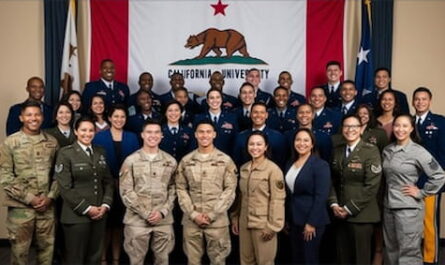Grants, unlike loans, provide money that you don’t have to pay back. This means they can relieve a lot of financial pressure for you. When you’re pursuing a college degree online in United States, finding financial support can be a game changer. So if you’re an online student, make sure to understand the types of grants available to you. Know the eligibility criteria, and learn how to apply. Doing so can help you access funds that make your education more affordable.
What types of grants are available to online college students in U.S.
There are lots of notable grant categories that you can explore. These include federal grants, state grants, institutional grants offered by colleges themselves, and grants from private or non-profit organizations.
Federal grants: The pell grant and more
The most recognized federal grant is the Pell Grant, designed for undergraduate students who demonstrate financial need. Your eligibility is mainly decided based on the Free Application for Federal Student Aid (FAFSA). It calculates your Student Aid Index (SAI).
Pell Grant amount depends on several factors. These include your financial need, the cost of your college, and whether you attend full-time or part-time. This grant is particularly important for students balancing work, family, and studies online. It can cover a significant portion of your tuition without requiring repayment.
The Federal Supplemental Educational Opportunity Grant (FSEOG) is another federal option. It targets students with exceptional financial need. This often includes those already receiving Pell Grants. But, FSEOG funds are limited and administered by individual schools, so applying early is beneficial.
There are also specialized grants too. For instance, the TEACH Grant supports students who commit to teaching in high-need fields at qualifying schools. The Iraq and Afghanistan Service Grant is also available. It is for students who lost a parent or guardian due to military service after 9/11.
State grants: Local support for online students
Many states offer grants to residents attending college within their state, including online programs. These grants vary widely in eligibility and amount. They often require you to be a state resident. You also need to be enrolled in an accredited online college. Since state funding can differ, it’s important to check your state’s higher education agency website. Also consult your college’s financial aid office for specific opportunities.
Institutional grants: Direct aid from online colleges
Numerous online colleges offer grants supported by tuition fees, state funding, or private contributions. These institutional grants can be need based. They are awarded according to your financial situation as shown in your FAFSA. They can also be merit based, given for academic achievements or special talents.
Since online colleges aim to attract a diverse student body, they often have grants tailored to support different backgrounds. These grants also supports several circumstances. To find these grants, visit the financial aid section on your college’s website or contact their financial aid office directly. They can guide you through available grants, application processes, and deadlines.
Private and non profit grants: Supplemental funding
Private organizations and non profits offer grants that can supplement federal and institutional aid. These grants often target specific groups like, minority students, women, or those pursuing particular fields like science or technology.
Examples include the Jack Kent Cooke Foundation, Gates Scholarship, Dell Scholars Program, and the UNCF Scholarships for African American students. Some employers, like Starbucks, also provide grants for online degree programs to their employees.
These grants usually have specific eligibility criteria and application requirements. Researching foundations and organizations aligned with your background or field of study can open additional funding doors for you.
How do I qualify for U.S. online college student grants
Most grants require you to complete the FAFSA. It assesses your financial need based on income. It also considers family size and other factors. This is the main step for federal and many school based grants. Some grants also have academic requirements too, like a minimum GPA or enrollment status (full time or part time).
Certain grants are designed for particular groups, such as first generation college students, veterans, or students in STEM fields. For instance, merit based institutional grants might require you to maintain a certain academic standing. While private grants might look for leadership qualities. They may also consider community service too.
State grants, on the other hand often require residency in the state and enrollment in an approved online program. Meanwhile, private and non profit grants may ask for essays, letters of recommendation, or proof of specific achievements.
For more information on securing a scholarship, check out this post on: How can I write a winning scholarship essay? 4 easy steps
What you should know about applying for grants
To apply for grants usually starts with the FAFSA, which opens doors to federal, state, and many institutional grants. It’s free to submit and should be done as early as possible since some grants have limited funds.
After FAFSA is completed, then check your college’s financial aid page for institutional grants. Reach out to their financial aid office for personalized advice. For private grants, searching scholarship databases and foundation websites can help identify opportunities.
Be mindful of deadlines and required documents too, and tailor your applications to meet each grant’s criteria.
Why grants are important for online students
Grants provide financial relief that lets you focus more on your coursework and less on money worries. Online students often juggle multiple responsibilities like work and family alongside their studies. Since grants don’t need to be repaid, they’re a preferable alternative to loans, thereby helping you avoid long term debt.
The availability of grants from federal, state, institutional, and private sources means that you have multiple avenues to explore. By combining these resources, you can reduce your educational expenses significantly.
Where you can find more information
Begin by researching grants available for online college students on FAFSA website for federal grants. And also to determine your financial aid eligibility. Check your state’s higher education agency too for state-specific grants. Explore your online college’s financial aid office for institutional grants and guidance too. Or private scholarship search engines like Fastweb or Edvisor to find private and non profit grants.
These overview and resources provides a clearer picture how grants can support your online college journey in the United States.
For more information on how can i find lesser known scholarships, check out this post on: How can I find lesser known scholarships guide.



